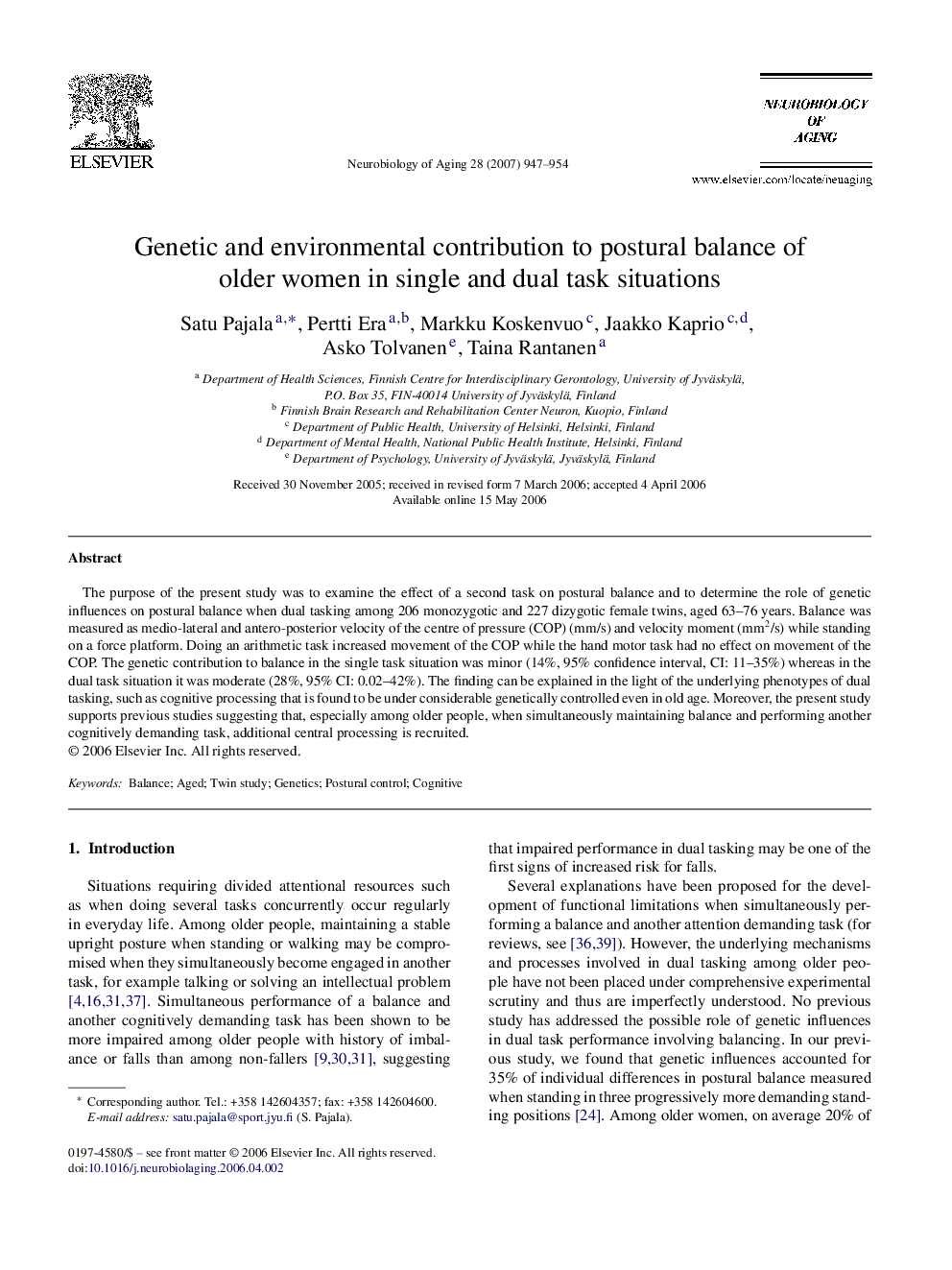| Article ID | Journal | Published Year | Pages | File Type |
|---|---|---|---|---|
| 331392 | Neurobiology of Aging | 2007 | 8 Pages |
The purpose of the present study was to examine the effect of a second task on postural balance and to determine the role of genetic influences on postural balance when dual tasking among 206 monozygotic and 227 dizygotic female twins, aged 63–76 years. Balance was measured as medio-lateral and antero-posterior velocity of the centre of pressure (COP) (mm/s) and velocity moment (mm2/s) while standing on a force platform. Doing an arithmetic task increased movement of the COP while the hand motor task had no effect on movement of the COP. The genetic contribution to balance in the single task situation was minor (14%, 95% confidence interval, CI: 11–35%) whereas in the dual task situation it was moderate (28%, 95% CI: 0.02–42%). The finding can be explained in the light of the underlying phenotypes of dual tasking, such as cognitive processing that is found to be under considerable genetically controlled even in old age. Moreover, the present study supports previous studies suggesting that, especially among older people, when simultaneously maintaining balance and performing another cognitively demanding task, additional central processing is recruited.
